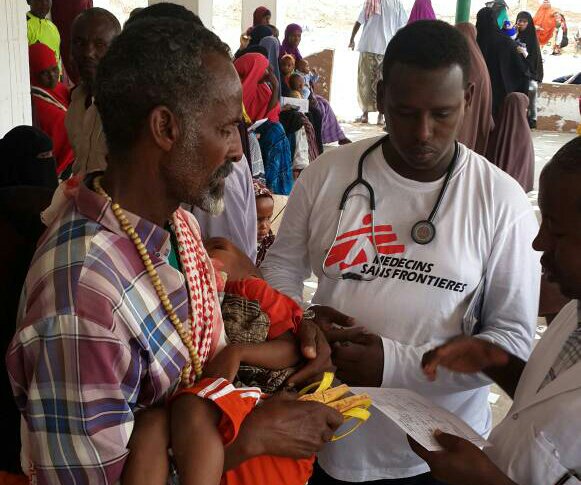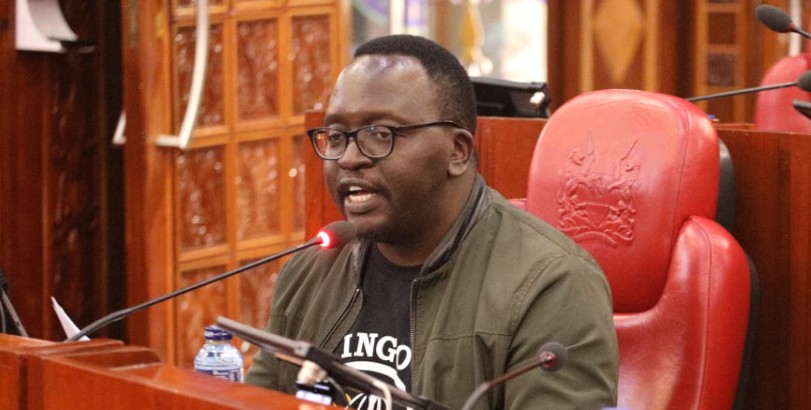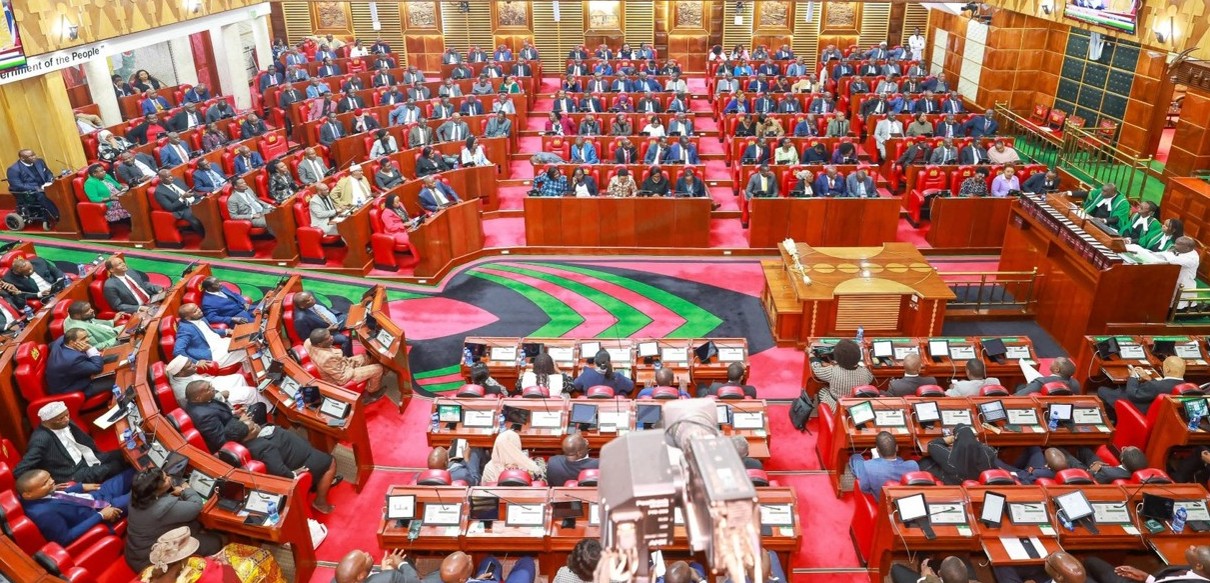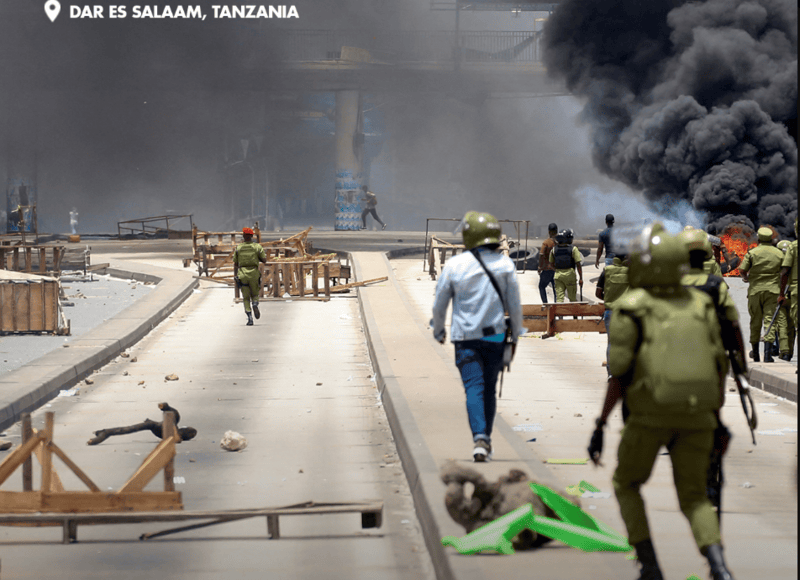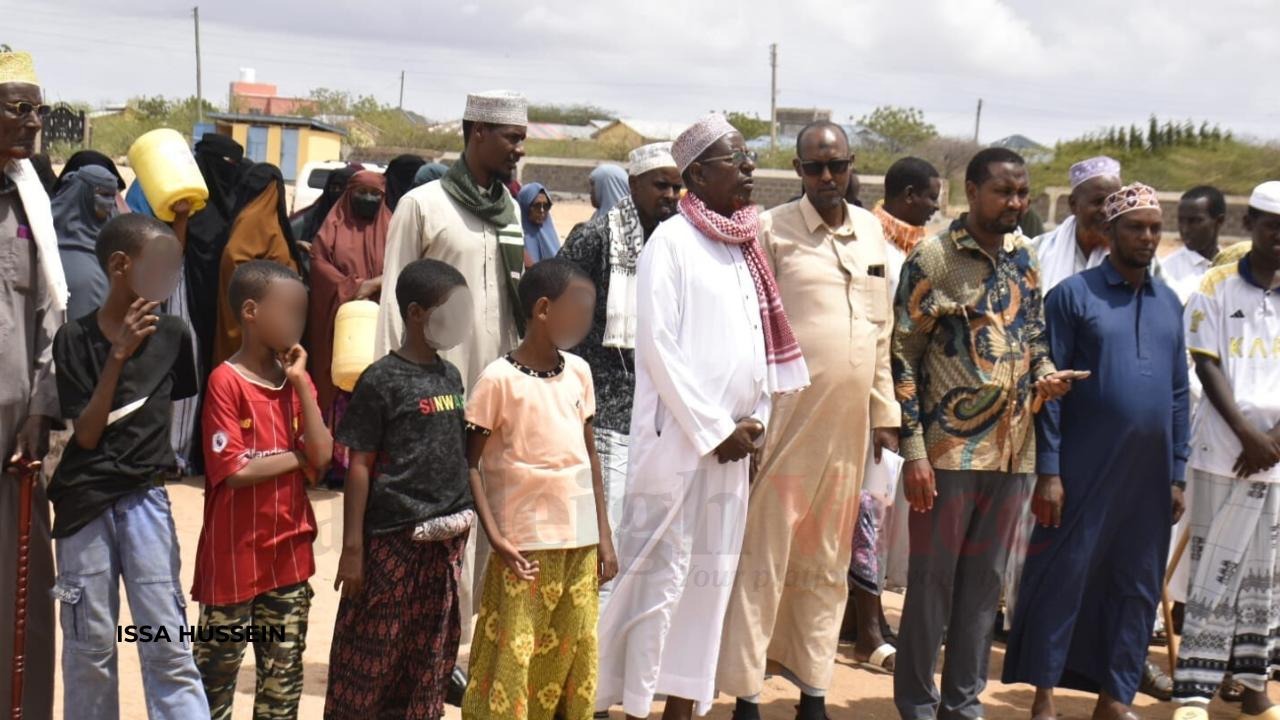Africa CDC highlights key challenges in containing Mpox outbreak across Africa

Kaseya further stated that the Africa CDC collaborates closely with African states, the WHO, and other partners to improve response efforts.
The Africa Centres for Disease Control and Prevention (Africa CDC) has raised concerns about four major problems influencing the continent's response to the mpox outbreak.
These include the large number of cases, insufficient diagnostic resources, and the disease's high mortality rate.
More To Read
- Reported massacre at hospital in Sudan’s El Fasher leaves 460 dead
- Severe flooding affects over 960,000 in South Sudan: UN
- WHO says polio eradication still feasible despite Sh219 billion funding cuts
- WHO says DRC could declare end of Ebola outbreak by December
- Last Ebola patient discharged as WHO starts countdown to end DRC outbreak
- WHO raises alarm as antibiotic resistance threatens global health gains
As of August 23, 2024, the African CDC reported 21,466 suspected mpox cases and 591 deaths in 13 African Union (AU) member states.
Africa CDC Director-General Jean Kaseya highlighted the critical challenges, including the rapid spread of mpox to new nations and inconsistent response efforts.
Kaseya stated that the recorded cases and deaths are likely only a fraction of the total numbers due to mpox's mild nature and poor surveillance, testing, contact tracing, and reporting.
Kaseya also cautioned that numerous previously unaffected countries have lately reported their first mpox cases, raising the possibility of the virus spreading beyond Africa.
He stated that Gabon has verified its first case, while Sierra Leone and Malawi are now testing suspected cases, emphasising that a negative test result does not always rule out mpox outbreak.
On August 13, the Africa CDC designated the mpox epidemic a Public Health Emergency of Continental Security (PHECS), citing "the clear and present danger that the onslaught of mpox is posing to the continent." The following day, the World Health Organisation (WHO) declared mpox a public health emergency of international concern, activating its highest level of global alert for the second time in two years as a more severe form emerged both within and outside of Africa.
Kaseya stated that declaring the PHECS required consultations with top African epidemiologists and laboratory professionals, as well as international organisations, who use a thorough method to identify mpox that incorporates laboratory testing, clinical assessment, and epidemiological data.
Burundi, Cameroon, the Central African Republic, the Republic of the Congo, Côte d'Ivoire, the Democratic Republic of the Congo (DRC), Gabon, Liberia, Kenya, Nigeria, Rwanda, South Africa, and Uganda are among the 13 African Union member nations that are currently reporting mpox cases.
Kaseya voiced alarm about the disease's high fatality rate, which normally runs between 3 and 4 per cent, as well as its link to HIV, which exacerbates the continent's challenges.
The Africa CDC has warned that mpox vaccinations may begin "in the coming days" as infections spread throughout the continent.
Kaseya further stated that the Africa CDC collaborates closely with African states, the WHO, and other partners to improve response efforts.
This includes dispatching over 200 epidemiologists and logisticians to afflicted nations, with 24 experts recently dispatched to assist with the response in the DRC and other badly impacted areas.
A continental strategy has been designed to coordinate the outbreak response and mobilise resources, with an incident management team led by the Africa CDC.
The second confirmed mpox case in Kenya involves a truck driver who travelled from Uganda and recently visited the Democratic Republic of the Congo, which is the epicentre of the outbreak.
The driver showed symptoms at the Port Health screening desk at Malaba One Stop Border Post; he is presently isolated and undergoing treatment at a health institution in Busia County.
So far, 42 samples have been tested for mpox, with 40 coming back negative. In addition, 426,438 travellers were screened at various ports of entry throughout Kenya.
Kenya has mobilised all 26 public health emergency operations centres across the country, prepared laboratories for mpox testing, and deployed 120 trained workers to handle the potential outbreak.
More than 250,000 people have been tested since Kenya increased its mpox screening earlier this month. Two other people are currently being tested for symptoms that resemble the mpox rash.
While only one case of clade Ib has been confirmed in Kenya, scientists believe more instances are probable, particularly given the country's status as a key travel centre in East Africa.
The confirmed case included a driver travelling from Uganda to Mombasa. Kenya has 35 entry and departure points and shares borders with Tanzania, Uganda, Ethiopia, Somalia, South Sudan, and the Indian Ocean.
Additional suspected instances have been recorded in Kisii, Kirinyaga, Kakamega, and Migori, and are awaiting confirmation after laboratory testing.
Healthcare providers collect specimens for mpox testing by vigorously rubbing a swab over several rash areas.
This operation may be painful, but it is vital to collect enough material to detect the infection.
The specimens are subsequently analysed in a laboratory, and results are usually ready within a few days.
Top Stories Today
Reader Comments
Trending
